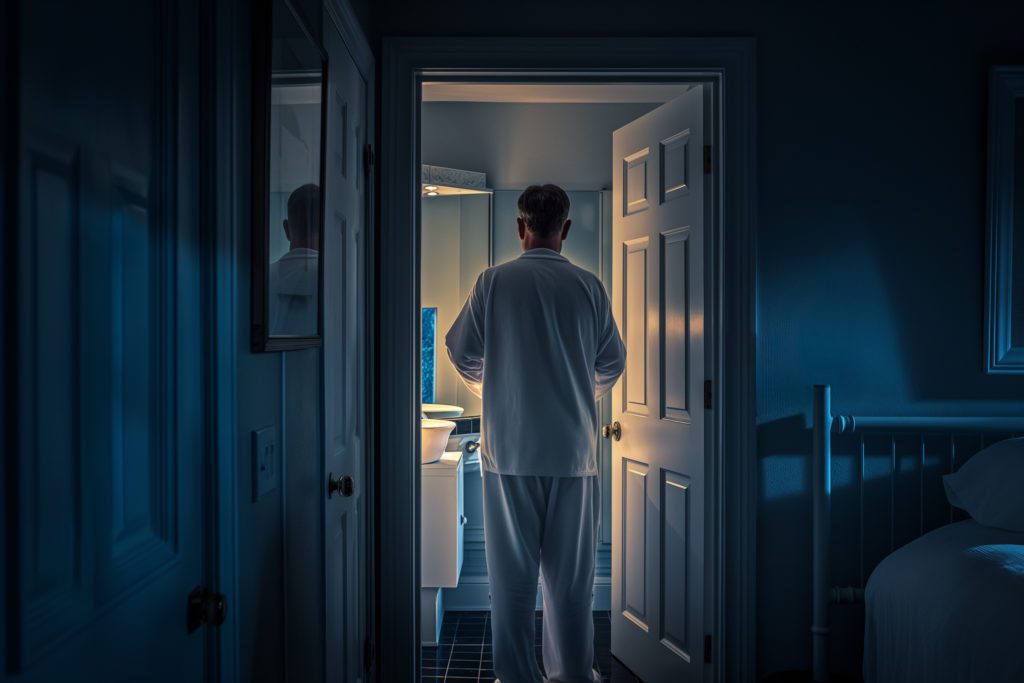
The Role of Circadian Rhythms in Dementia and Cognitive Functioning
Why does not having a consistent sleep routine affect your performance during the day? It's because of the connection between circadian rhythms and cognitive performance. Read ahead for more.

Circadian rhythms, often named our "biological clock," control the 24-hour cycle of physical, mental, and behavioral changes that occur in response to environmental cues like light and darkness. These natural cycles help regulate several essential functions. But did you know they also play a significant role in cognitive performance?
In fact, circadian rhythms deeply influence our cognitive functions—which include memory, attention, and decision-making. However, when these rhythms are disrupted the effects on cognitive health can be significant.
In this article, we will explore the fascinating connection between circadian rhythms and cognitive function. We'll look at how disruptions to these rhythms may contribute to cognitive decline and how maintaining a healthy sleep-wake cycle can improve brain health.
The Basic Science Behind Circadian Rhythms
Circadian rhythms are internal processes that repeat roughly every 24 hours and are present in most living organisms. These rhythms are primarily controlled by a small part of the brain called the suprachiasmatic nucleus (SCN). The SCN regulates the timing of daily activities, including when we feel sleepy, awake, and alert.
The most well-known circadian rhythm is the sleep-wake cycle. Our body's internal clock helps us fall asleep when it's dark and wake up when it's light. But circadian rhythms go far beyond sleep. They also regulate important functions like body temperature, hormone secretion, and metabolism. This makes them crucial for overall health.
For example, the production of melatonin, a hormone that helps us sleep, is closely linked to our circadian rhythm. When it gets dark, our body naturally produces melatonin, making us feel sleepy. But when circadian rhythms are disturbed — say, from jet lag, irregular sleep, or shift work — it can throw off melatonin production, making it harder to fall asleep and function well during the day.
These rhythms are deeply rooted in our biology. Therefore, they influence everything from our mood to how we process information. Any disturbances in this cycle can have serious effects on our health, particularly on our brain.
Circadian Rhythms and Cognitive Function
Circadian rhythms play a crucial role in optimizing cognitive function. Our brains are not equally sharp throughout the day. Instead, our cognitive abilities fluctuate in sync with our internal clock. Research shows that cognitive performance peaks during certain times of the day and dips during others.
Alertness
One key aspect of cognitive function influenced by circadian rhythms is alertness. Research has demonstrated that people tend to be more focused and perform better on tasks requiring attention and concentration during their natural peak times, which for many individuals is in the late morning. On the other hand, cognitive performance tends to decline in the late afternoon and evening as the brain enters a natural rest phase.
Memory
Memory is another cognitive function deeply affected by circadian rhythms. Studies have shown that both working memory and long-term memory consolidation are enhanced when individuals maintain regular sleep-wake schedules.
A 2022 study published in the Annual Review of Psychology found that participants who followed a consistent sleep-wake cycle had better recall and memory performance compared to those with disrupted circadian rhythms. It's clear that our ability to remember, learn, and recall information is tied to the natural rhythms of our body.
Critical Thinking
Circadian rhythms also influence decision-making and problem-solving abilities. Research suggests that people's ability to make sound decisions is at its highest during the hours when they feel most alert. Disruptions to the circadian rhythm, such as those caused by irregular sleep patterns, can lead to poor decision-making as the brain struggles to function at its peak.
When our circadian rhythms are in sync, we perform better. But when these rhythms are disrupted, whether by shift work, jet lag, or irregular sleep, cognitive performance can suffer.
Circadian Rhythms and Dementia
Dementia, particularly Alzheimer's disease, is characterized by a gradual decline in cognitive functions such as memory, thinking, and problem-solving. One of the key symptoms of dementia is the disruption of the sleep-wake cycle.
In healthy individuals, circadian rhythms help regulate sleep patterns and cognitive performance, with cognitive abilities peaking during certain times of the day. However, in people with dementia, these natural rhythms are frequently disrupted, leading to significant sleep disturbances. This dysregulation of the circadian clock can result in sleep fragmentation, daytime sleepiness, and insomnia, all of which can worsen cognitive function and exacerbate the symptoms of dementia.
Research has shown that individuals with dementia often experience impaired synchronization of their circadian rhythms, which can manifest as a reversal of sleep-wake cycles (e.g., sleeping during the day and being awake at night). These disruptions are believed to contribute to the cognitive decline associated with the disease.
Moreover, the buildup of amyloid plaques and tau tangles, hallmark signs of Alzheimer's disease, has been linked to circadian rhythm disturbances, suggesting that the dysfunction of the biological clock could potentially accelerate the progression of dementia.
How Can You Help Your Circadian Rhythms?
While disruptions in circadian rhythms can contribute to cognitive decline, there are ways to improve these rhythms and boost cognitive function.
Light Therapy
One of the most effective methods is light therapy. Light exposure is one of the strongest cues for regulating the circadian rhythm.
Getting exposure to bright light in the morning helps reset the body's internal clock, leading to improved sleep and cognitive performance.
For example, research published in PLoS ONE journal highlighted that bright light therapy, when used early in the morning, can help synchronize circadian rhythms and improve cognitive function in both healthy individuals and those with cognitive impairments like dementia.
Additionally, bright light also helps individuals combat daytime sleepiness and stay alert to perform daily tasks.
Good Sleep Hygiene
In addition to light therapy, good sleep hygiene is essential for maintaining a healthy circadian rhythm. This includes maintaining regular sleep-wake times, avoiding caffeine in the afternoon, and minimizing exposure to blue light from devices like phones and computers before bed.
A consistent routine signals to your body when it's time to wind down. This approach ensures a more restful night's sleep and better cognitive performance during the day.
Exercise and Diet
Exercise and a healthy diet also contribute to circadian health. Regular physical activity, particularly in the morning, helps regulate the body's internal clock. A balanced diet rich in vitamins, minerals, and healthy fats can support brain health and improve cognitive function.
Research shows that physical activity not only improves circadian rhythm alignment but also enhances memory and learning capacity.
In short, including these strategies in daily life can help optimize circadian rhythms and improve cognitive performance, all while supporting long-term brain health.
The Bottom Line
Circadian rhythms play a foundational role in regulating cognitive function, affecting everything from memory and attention to decision-making.
Fortunately, maintaining healthy circadian rhythms through practices like light therapy, good sleep hygiene, and regular physical activity can improve cognitive performance. These strategies not only help keep our brains sharp but also protect against the cognitive decline often seen in dementia.
FAQ
How does shift work or irregular sleep schedules impact the risk of developing dementia later in life?
Chronic circadian misalignment from shift work can lead to hormonal imbalances, metabolic disorders, and brain aging. Studies show long-term shift workers have a higher risk of dementia due to prolonged sleep deprivation, reduced brain plasticity, and increased neurodegenerative changes.
Are there cultural or lifestyle factors that influence circadian rhythms and dementia risk?
Cultural habits such as late-night screen exposure, inconsistent sleep patterns, and dietary choices can impact circadian health. Societies with strong outdoor routines and scheduled social activities may experience fewer sleep disturbances, which can lower the risk of cognitive decline in older adults.
What role does melatonin supplementation play in managing circadian rhythm disorders in dementia?
Melatonin supplements can improve sleep quality, reduce nighttime awakenings, and alleviate sundowning symptoms in dementia. However, effectiveness varies based on timing and dosage, and excessive use may cause drowsiness or worsen daytime alertness. Consultation with healthcare providers is recommended.
Can wearable technology help track and manage circadian health in dementia patients?
Wearables like smartwatches and sleep trackers monitor sleep patterns, physical activity, and light exposure, offering insights into circadian health. These devices can help caregivers identify disruptions, adjust routines, and optimize treatment plans to improve sleep and cognitive well-being.
What environmental modifications can support better circadian health in dementia care ?
Adjusting indoor lighting to mimic natural daylight, reducing noise levels at night, and maintaining a consistent daily routine can help regulate sleep patterns. Exposure to bright light in the morning and dim lighting in the evening promotes better circadian alignment in dementia patients.
How do circadian rhythms change with aging, and how does this impact dementia risk?
As people age, circadian rhythms weaken, leading to fragmented sleep and changes in hormone production, such as reduced melatonin levels. These disruptions can accelerate cognitive decline and increase the risk of dementia. Maintaining consistent sleep schedules and exposure to natural light can help mitigate these effects.

Written by
Dr Aqsa
As a Medical Doctor, Dr Aqsa, uses her knowledge to craft complex medical information that is understandable to the general public. For years, she has tried to improve health literacy and empower readers with valuable health knowledge through her articles, blog posts, and educational materials.
Download Pillow
Get help
Press & News
Legal
Connect
X (Twitter)
Company
Copyright © Neybox Digital Ltd.



